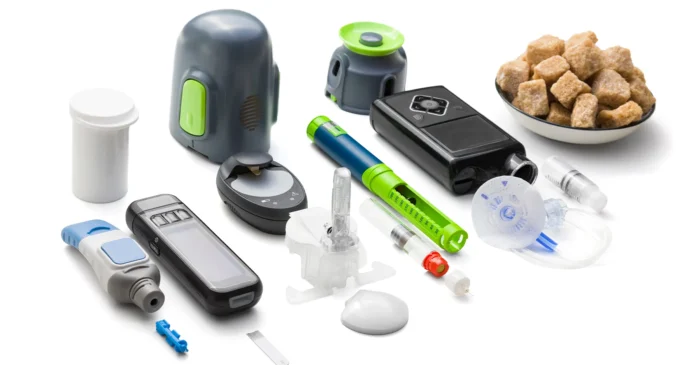In recent years, diabetes care has witnessed remarkable transformations heralded by groundbreaking innovations in technologies and medications. These advances have not only reshaped diabetes management strategies but have also illuminated the path to a future where the burdens of this chronic condition are significantly minimized.
Below, we will explore some of the most promising developments in the field, shedding light on how they promise to enhance the lives of millions of individuals around the globe who are battling diabetes.
New Development of Metformin
Metformin has been a staple in the treatment of type 2 diabetes. And this medication offers its own set of advancements. Metformin, among the earliest oral medications for diabetes and consistently endorsed in current protocols as the initial treatment option for type 2 diabetes mellitus, is witnessing a continual rise in its potential therapeutic applications.
Research, including experimental and clinical studies, has demonstrated that metformin exhibits multifaceted benefits and positive effects in various health conditions such as prediabetes, type 1 diabetes mellitus (T1DM), and gestational diabetes mellitus (GDM).
Additionally, numerous studies, meta-analyses, and population research suggest that metformin is safe and well-accepted, potentially offering benefits for heart and kidney protection.
Recent findings suggest that metformin not only aids in maintaining glucose levels but may also reduce the risk of cancer, decrease the occurrence of neurodegenerative diseases, and potentially extend lifespan. However, not all studies concur on these broader benefits.
You can discuss these other benefits of metformin with your physician. Moreover, check out BuzzRx guide to Metformin HCL prescription savings to save money on your next purchase.
Continuous Glucose Monitoring (CGM) Systems
Continuous Glucose Monitoring (CGM) Systems represent a groundbreaking innovation in diabetes management. They offer a high-tech, real-time solution to tracking blood sugar levels. Unlike traditional methods requiring frequent finger-pricking, CGM devices continuously monitor glucose levels through a tiny sensor inserted under the skin.
This data is then transmitted to a reader or smartphone app, allowing users to track their glucose levels 24/7 without needing manual checks.
This new wave of technology facilitates tighter glucose control and empowers individuals with diabetes to lead more flexible and spontaneous lives. Users can make more informed decisions in real time by receiving immediate feedback on how their glucose levels respond to food, exercise, and medication.
Additionally, seeing glucose trends over time helps identify patterns and adjust treatment plans, potentially significantly reducing the risk of high and low blood sugar episodes.
CGM Systems are transforming diabetes care by shifting the focus from reactive to proactive management. With the promise of improved control and convenience, CGMs are paving the way toward a less invasive, more manageable approach to diabetes.
Advancements in Insulin Delivery Systems
Insulin delivery systems have also seen remarkable improvements. The recent introduction of smart insulin pens and pumps that can calculate doses automatically has made managing insulin easier and more efficient.
These devices can often integrate with CGM systems, enabling a semi-automated system to manage blood glucose levels with minimal manual intervention.
Numerous studies have focused on identifying a less invasive yet efficient method for insulin delivery. Advances in diabetes management technologies, encompassing insulin pumps, continuous glucose monitoring (CGM) systems, and intelligent predictive algorithms, have paved the way for developing closed-loop systems that emulate natural insulin release.
The main aim is to formulate an Artificial Pancreas System (APS) that is both cost-effective and widely available, capable of maintaining optimal glucose levels with high precision. Realizing this objective will demand additional commitment and time, but it promises to transform diabetes treatment fundamentally.
The Future of Diabetes Care
The horizon of diabetes care is experiencing a paradigm shift, fueled by rapid advancements in technology and medicine that promise to alter how this chronic condition is managed significantly.
As we look to the future, several key trends and innovations stand poised to transform diabetes care, making management more efficient, less invasive, and far more patient-centered.
Aside from the already mentioned, tailored nutrition and lifestyle modifications are crucial in managing diabetes. Wearable technology and mobile health apps make tracking patients’ dietary intake, physical activity, and glucose levels easier in real time, allowing for more personalized and effective management plans.
Moreover, emerging research in stem cell therapy and regenerative medicine promises to potentially cure Type 1 diabetes by regenerating insulin-producing beta cells in the pancreas. While still in the early stages, these advances could revolutionize the approach to diabetes treatment.
The future of diabetes care is bright, with technology and innovation leading the way toward more effective, less burdensome management strategies.
These advancements aim to improve the day-to-day lives of those living with diabetes and offer the potential for dramatic shifts in the overall approach to treatment, moving closer to a world where diabetes can be more easily managed or possibly even cured.
Conclusion
The pace of innovation in diabetes care is accelerating, offering hope and improved quality of life for individuals with diabetes. With each technological advancement and medication breakthrough, managing diabetes becomes less burdensome, paving the way for a future where diabetes can be controlled more effectively or possibly cured.
